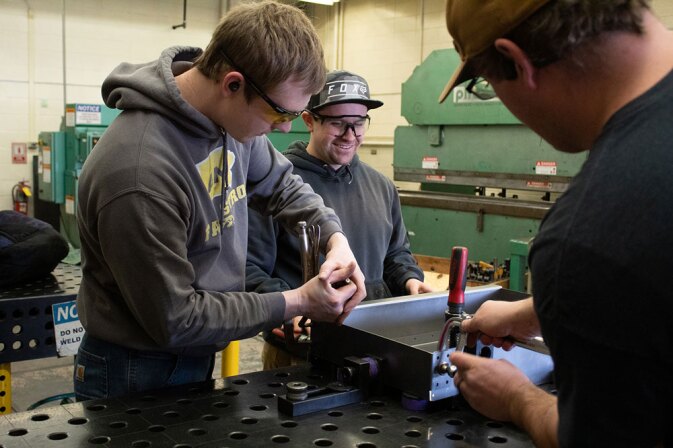
Build a Foundation
Even though an associate’s degree in Welding and Fabrication Technology takes fewer credits, students will learn the basics of chemistry, manufacturing processes, welding science and applied processes, and engineering technology. They will be able to demonstrate extensive practical experiences with various manufacturing processes and advanced manufacturing technologies.
Students will learn to apply practical mathematics, science, engineering, and technology knowledge to engineering technology problems. They will gain the knowledge and skills to interpret and apply welding inspection procedures and code standards accurately.
Students will learn to apply practical mathematics, science, engineering, and technology knowledge to engineering technology problems. They will gain the knowledge and skills to interpret and apply welding inspection procedures and code standards accurately.
Highlighted Career Paths
Graduates with an Associates degree in Welding and Fabrication Technology have a wide array of rewarding careers before them. Check out some of the top careers students get with this degree or explore more career options in I-Plan.
Welding Technician
Welding technicians assist engineering personnel in testing and evaluating materials, processes, and standards. Their duties include inspecting and reporting according to given procedures and training and monitoring manual welders. Further responsibilities include programming and troubleshooting automated welding equipment.
Getting Started
If you are interested in Welding and Fabrication Technology, start with one of the following courses:


